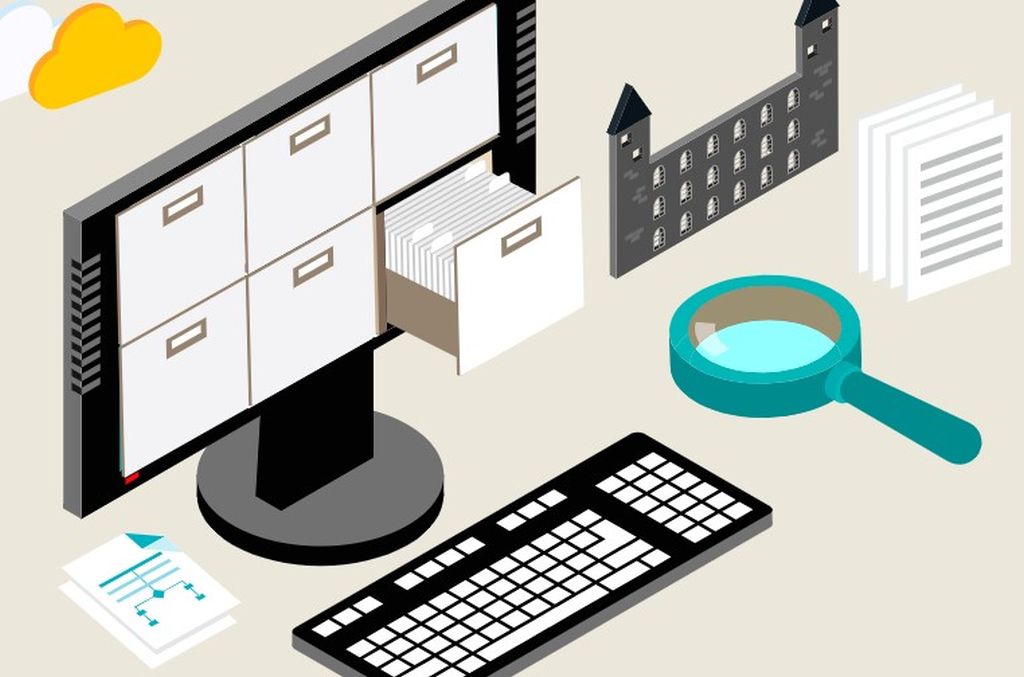Information archiving has become a crucial tool for modern businesses to manage and preserve massive volumes of data effectively. In that sense, data archiving has shown to be very useful for e-discovery and litigation assistance.
Using efficient data preservation techniques, companies can extract valuable insights, cut expenses, and maintain regulatory compliance.
Let’s delve into how companies might use data archiving to improve e-discovery procedures, boost litigation support initiatives, and lower risks related to legal processes.
Understanding Data Archiving

Before tackling the benefits of using data archiving for e-discovery and litigation support, it is essential to understand the concept itself. Data archiving involves systematically storing and managing data that is no longer actively used but remains valuable for future references or legal purposes.
This archived data can include emails, documents, database records, chat logs, and other types of sensitive information. Implementing data archiving solutions allows organizations to effectively store, organize, and retrieve information, ensuring authenticity, integrity, regulatory compliance, and availability throughout its lifecycle.
Streamlining E-Discovery with Data Archiving
E-discovery involves the process of identifying, accumulating, and producing electronically stored information (ESI) for judicial proceedings. One downside of using conventional e-discovery methods is that it can be expensive, time-consuming, and prone to human error.
However, by using data archiving solutions, businesses may expedite the e-discovery procedure. Data archiving technologies allow legal teams to rapidly and precisely retrieve pertinent material thanks to their advanced search and retrieval features, significantly decreasing the time and effort needed for discovery requests.
And there’s more to it – data archiving empowers organizations to implement legal holds on archived data, ensuring its preservation and preventing data spoliation. By maintaining a centralized repository of archived information, businesses can efficiently respond to litigation demands and comply with legal obligations, strengthening their position in legal proceedings.
Enhancing Litigation Support with Data Archiving

Source: pinterest.com
Litigation support involves providing crucial information and evidence to support legal strategies during litigation. Proper information archiving is pivotal in enhancing litigation support efforts by providing access to historical data, communications, and business records. Preserving and organizing relevant information allows legal teams to build stronger cases, analyze trends, and identify patterns that support their arguments.
It can also help maintain data integrity and authenticity, ensuring the information presented during litigation is trustworthy and reliable. This instills confidence in the court and helps establish credibility for the organization.
On top of that, data archiving solutions often offer advanced analytics and reporting capabilities, allowing legal teams to extract actionable insights from the archived data, which can further strengthen their position in legal disputes.
Mitigating Risks and Ensuring Compliance
Data archiving not only streamlines e-discovery and enhances litigation support but also mitigates risks associated with legal proceedings. Implementing robust archiving solutions enables organizations to minimize the chances of data loss, accidental deletions, or unauthorized tampering.
Data preservation in a secure and tamper-evident manner strengthens the organization’s ability to defend itself in legal disputes and ensures the availability of critical evidence when needed. Data archiving also aids in regulatory compliance by facilitating adherence to various data retention and privacy laws.
Industries such as healthcare, finance, and government are subject to stringent regulations governing the retention and protection of sensitive information. By leveraging data archiving, organizations can establish consistent and auditable practices that align with these regulations, avoiding potential penalties and reputational damage.
The Future of Data Archiving and E-discovery

Source: freepik.com
Data archiving and e-discovery are two fields that are changing as technology advances. Future developments in machine learning (ML) and artificial intelligence (AI) will change these procedures, increasing their efficacy and efficiency.
AI and ML systems may be trained to examine enormous volumes of data, spot patterns, and accurately classify information. With this feature, the e-discovery process will evolve rapidly, allowing legal teams to find pertinent documents and evidence more quickly. AI-powered data archiving systems may also proactively highlight material that might be pertinent for litigation assistance, saving time and money.
Another beneficial feature is the integration of natural language processing (NLP) technologies that will enable data archiving solutions to understand and interpret unstructured data, such as emails, chat conversations, and social media posts. This will facilitate more comprehensive and precise searches, improving e-discovery and litigation support outcomes.
The development of cloud-based archiving will also depend heavily on improvements in data security and privacy. Secure archiving solutions that shield sensitive data from unwanted access will need to be prioritized by organizations to ensure compliance with changing data protection rules.
The Wrap-Up
Information archiving has become crucial for businesses dealing with e-discovery and litigation support issues in today’s data-driven environment. Companies can improve litigation support efforts, expedite the e-discovery process, and reduce the risk associated with legal proceedings by using the vast potential that these data preservation methods can bring.
Utilizing data archiving solutions enables firms to effectively manage massive volumes of data, find pertinent information quickly, and guarantee regulatory compliance. Investing in data archiving will be important in increasing productivity, cutting costs, and retaining a competitive advantage in the legal environment as firms continue to struggle with the complexity of legal challenges.



